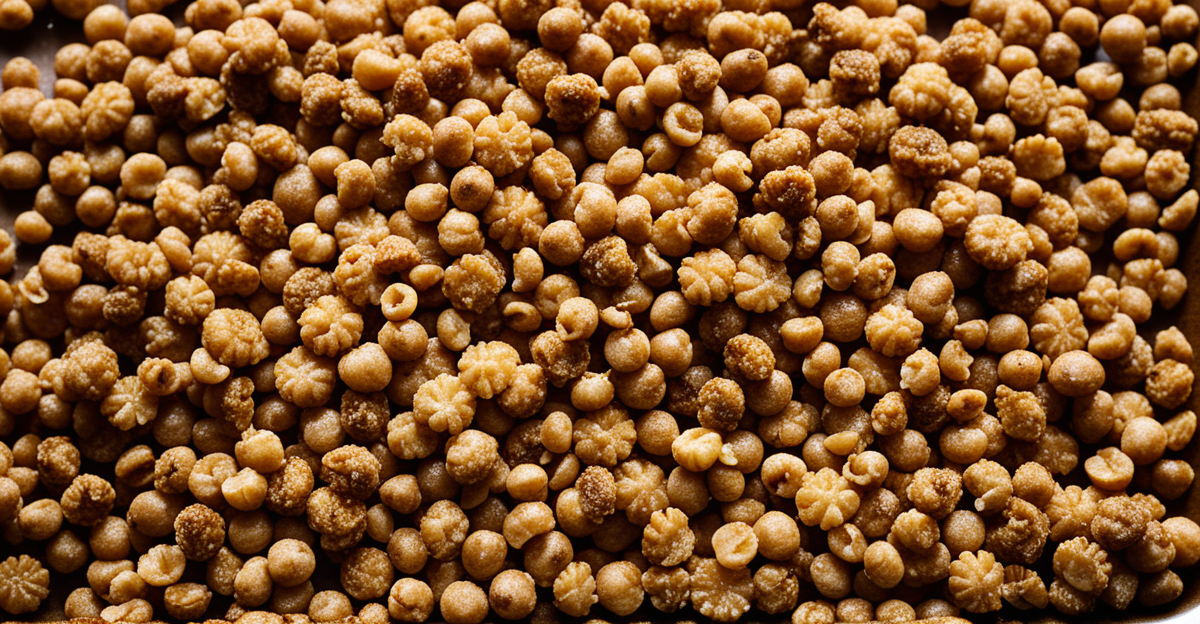Historical Development of British Cuisine
British cuisine history is a tapestry woven from diverse influences and evolving traditions. The origins of British food date back to medieval times, when diets centered on locally sourced ingredients like grains, meat, and root vegetables. Over centuries, these traditional British cooking practices were shaped by several external factors.
Invasions by the Romans, Vikings, and Normans introduced new cooking techniques and ingredients, enriching the culinary landscape. Trade routes and colonial expansion during the British Empire era notably expanded access to spices, sugar, and exotic foods, integrating these elements into British cuisine history. This phase marked the fusion of native dishes with global flavors.
Also to see : What Are the Key Ingredients to Perfecting Traditional UK Dishes?
Public perception of British cuisine has experienced shifts, especially as traditional British cooking was once viewed narrowly. However, recognition has grown worldwide, especially as these historic roots have been revisited and reinterpreted. Understanding British cuisine history involves appreciating the blend of enduring recipes with adaptations influenced by centuries of cultural exchange. This evolving narrative highlights how traditional British cooking continuously adapts while maintaining a distinct identity.
Historical Development of British Cuisine
British cuisine history reveals a journey from simple, hearty medieval fare to a diverse culinary landscape. The origins of British food are deeply tied to its agricultural roots, featuring staple ingredients like meats, root vegetables, and grains. Traditional British cooking evolved through several key phases, shaped by events such as the Norman invasion, which introduced new meats and cooking methods.
In parallel : How can you make a classic Eton mess with seasonal fruits?
Trade played a crucial role in broadening British food horizons. Spices brought back by merchants enriched flavors beyond the original British palate. Later, British colonization further expanded culinary influences, introducing ingredients and techniques from India, the Caribbean, and beyond. These interactions created a unique blend, marrying indigenous dishes with exotic elements.
Public perception of British cuisine has shifted dramatically. Once viewed as plain, British food is now appreciated globally for its rich history and comfort. The embracing of both heritage recipes and contemporary innovations signal a cuisine in continuous evolution—rooted in tradition yet dynamic and diverse. This transformation underscores how British cuisine history is a story of adaptation, resilience, and cultural dialogue.
Historical Development of British Cuisine
British cuisine history reflects a complex evolution from simple medieval fare to a diverse and internationally recognized food tradition. The origins of British food lie in the use of staple ingredients such as grains, root vegetables, and meats that formed the backbone of traditional British cooking. However, this foundation was profoundly altered by invasions from the Romans, Vikings, and Normans, who introduced new meats, herbs, and cooking practices, broadening the culinary scope.
Trade routes intensified these changes by bringing spices, sugar, and ingredients from Asia and the Caribbean. This expansion was further accelerated by British colonization, which not only introduced new flavors but also delighted local palates by merging global spices and cooking techniques with indigenous recipes. Such exchanges vividly illustrate how the evolution of British cuisine history was tied to external influences.
Public perception has also shifted markedly. Although once stereotyped as bland, British cuisine now enjoys heightened respect worldwide. This transformation stems from a renewed appreciation for its rich historical roots and the savvy integration of imported elements. In this light, the origins of British food and traditional British cooking reveal a dynamic culinary identity, continuously adapting while remaining unmistakably British.
Historical Development of British Cuisine
British cuisine history showcases a clear evolution from medieval staples to complex modern traditions. The origins of British food lie in simple, hearty ingredients—grains, root vegetables, and meats—forming the base of traditional British cooking. However, this foundation was greatly transformed by waves of invasions, including the Romans, Vikings, and Normans, who introduced new meats, herbs, and culinary techniques that expanded flavor profiles and cooking methods.
Trade dramatically influenced British food by introducing exotic spices, sugar, and ingredients from regions like Asia and the Caribbean. British colonization further accelerated this process, blending native recipes with global tastes and establishing cross-cultural connections. This integration enriched British cuisine history, creating a palate far beyond its initial boundaries.
Public perception also shifted significantly. Once considered plain, British cuisine now enjoys global respect, hailed for its historical depth and adaptability. The origins of British food combined with evolving traditional British cooking methods reveal a cuisine that blends history and innovation. This historic interplay underscores British cuisine’s transformation into a diverse, vibrant tradition appreciated worldwide.
Iconic British Dishes and Their Global Reach
Iconic British dishes like fish and chips, roast beef, and afternoon tea have long been emblematic of British food worldwide. Their international popularity stems from simplicity and comforting familiarity, paired with unique preparation techniques rooted in British culinary tradition. For example, fish and chips became a symbol of Britain’s working-class diet but evolved into a beloved fast food globally.
Adaptations of these famous British dishes are common in various countries, reflecting local tastes and ingredients. In Australia and Canada, fish and chips are widespread, while afternoon tea customs find enthusiastic followers in places like Japan and the United States. This globalization of British cuisine ensures its ongoing relevance.
The influence of British expatriates and migration has significantly contributed to the spread of these foods. Communities abroad maintain traditional British meals, helping preserve culinary ties to the homeland. These populations often fuse elements from their new environments, enriching the British culinary heritage with international flavors, thus sustaining the dishes’ legacy beyond the UK borders.
Historical Development of British Cuisine
British cuisine history is marked by a continuous evolution from its origins of British food in medieval times to dynamic modern expressions. Traditional British cooking initially relied heavily on locally grown grains, meats, and root vegetables. However, invasions from the Romans, Vikings, and Normans introduced new cooking methods, herbs, and meats that diversified the culinary repertoire. These early changes laid the groundwork for a rich fusion of flavors and techniques.
Trade and colonial expansion further shaped British cuisine history by introducing exotic spices, sugar, and ingredients from Asia, Africa, and the Caribbean. This global exchange dramatically expanded the palette available to British cooks and enriched traditional British cooking practices. The melding of local and imported elements resulted in dishes reflecting an international dimension while rooted in British heritage.
Public perception of British cuisine has experienced significant shifts over time. Once stereotyped as bland and unadventurous, it has gained international respect, partly due to its historical adaptability and innovative modern interpretations. These evolving views highlight how the origins of British food and traditional British cooking serve as the foundation for a culinary tradition celebrated worldwide for its depth and versatility.
Historical Development of British Cuisine
The historical development of British cuisine illustrates a significant journey from medieval simplicity to a richly diverse culinary tradition. The origins of British food rest on staple ingredients like grains, root vegetables, and meats, foundational elements of traditional British cooking that defined early diets. However, this baseline was transformed dramatically by key historical influences.
Invasions by the Romans, Vikings, and Normans introduced novel meats, herbs, and new cooking techniques, broadening Victorian and medieval palates. Trade further expanded access to exotic spices and sugars, linking Britain’s food culture with Asia and the Caribbean. The colonial era intensified this exchange, blending indigenous recipes with global flavors brought back by the British Empire.
Public perception evolved alongside these changes. Once deemed plain or uninspired, British cuisine history now enjoys an elevated global reputation for its mix of tradition and innovation. This shift recognizes the rich origins of British food and the adaptive nature of traditional British cooking, which continues to incorporate diverse influences, reflecting centuries of cultural dialogue and culinary experimentation.
Historical Development of British Cuisine
British cuisine history spans a transformative journey from its medieval roots to the diverse, dynamic tradition it is today. The origins of British food are grounded in staple ingredients such as grains, root vegetables, and meats, which formed the basis of traditional British cooking. Yet the evolution of British cuisine history owes much to a series of key influences. Invasions by the Romans, Vikings, and Normans introduced novel meats, herbs, and cooking methods, expanding the culinary repertoire beyond its initial simplicity.
Trade routes were pivotal, bringing exotic spices, sugar, and new ingredients that enhanced flavor profiles. British colonial expansion further accelerated this culinary enrichment, merging global tastes with native recipes. These interactions created a fusion that embodied the evolving nature of British cuisine history, demonstrating its ability to absorb and adapt external influences.
Public perception of British cuisine has notably shifted. Once described as plain, it now enjoys greater international respect. This change reflects the depth and adaptability of British cuisine history, highlighting the continual innovation within traditional British cooking and the enduring appeal of the origins of British food.
Historical Development of British Cuisine
The origins of British food trace back to medieval times when diets relied heavily on available grains, root vegetables, and meats, forming the basis of traditional British cooking. However, British cuisine history transformed significantly due to invasions by the Romans, Vikings, and Normans. These groups introduced new meats, herbs, and cooking techniques, expanding the culinary repertoire. For instance, the Normans brought game meats and refined roast methods, shifting flavor profiles and meal structures.
Trade further diversified British cuisine history by introducing exotic spices and sweeteners from Asia and the Caribbean. British colonization intensified these influences, blending indigenous recipes with foreign ingredients, creating a unique culinary fusion. This era expanded the British palate beyond the original staples, fostering innovation while maintaining core traditions.
Public perception of British cuisine has shifted from a view of simplicity to increased global respect. This change reflects the cuisine’s adaptability—honoring traditional British cooking methods while embracing imported flavors. Such evolution underscores how the historical development of British cuisine combines its humble medieval beginnings with dynamic influences from external sources, shaping a rich, enduring food culture.
Historical Development of British Cuisine
British cuisine history traces a remarkable evolution from its origins of British food in medieval times to the complex and rich culinary tradition seen today. Initially, traditional British cooking focused on simple, hearty ingredients such as grains, root vegetables, and meats. However, this foundation was profoundly reshaped by key historical influences.
Invasions by the Romans, Vikings, and Normans introduced new meats, herbs, and cooking techniques, significantly broadening the culinary repertoire beyond its early simplicity. Trade was equally transformative; it facilitated the introduction of exotic spices, sugar, and other ingredients from Asia and the Caribbean. This influx expanded flavor profiles and enriched the cooking palette. British colonial expansion accelerated this process, fusing indigenous recipes with global influences, resulting in uniquely hybrid dishes.
Public perception of British cuisine history has shifted with time. Once considered plain, it now commands global respect due to its adaptability and historical depth. The ongoing dialogue between the origins of British food and traditional British cooking reflects a continuous adaptation process, balancing heritage with innovation. This evolution highlights British cuisine history as an ever-changing culinary narrative shaped by diverse cultural and historical forces.




